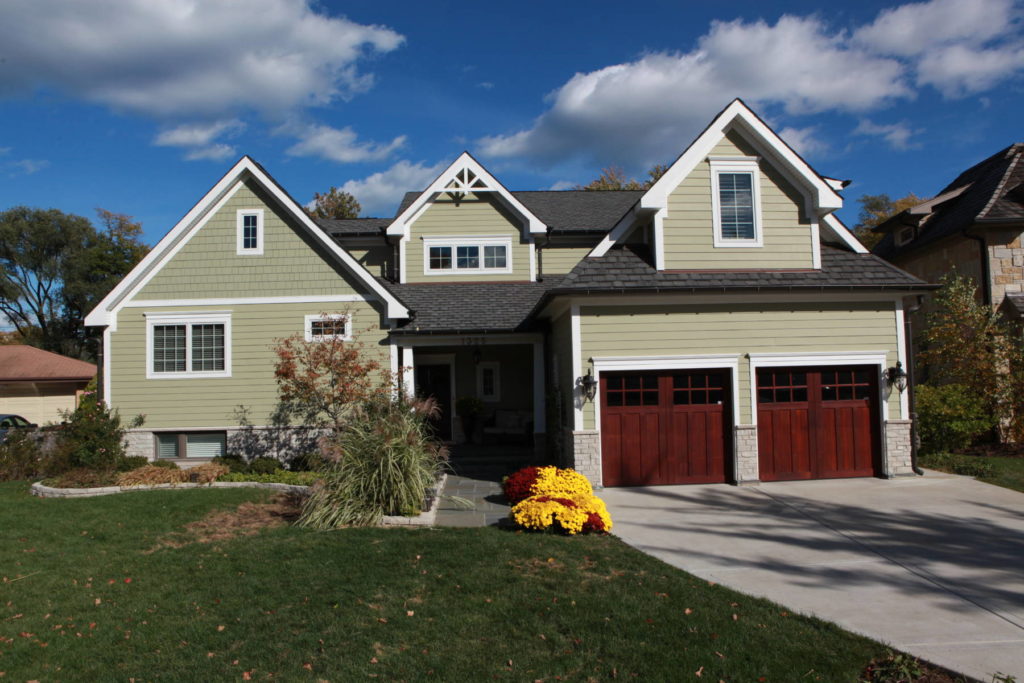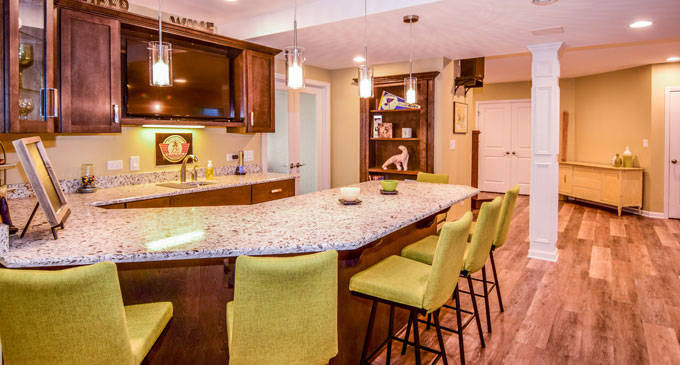Most homeowners already know that remodeling can greatly increase the value of their homes. But did you know that adding lasting value through major home improvements can also provide you with an opportunity to decrease your tax bill upon the sale of your home?
A lot of people have found themselves asking, “are home improvements tax deductible?” If you are one of those individuals, you have come to the right place. There are many ways to claim tax deductions for capital improvements on your home.
When Can You Write Off Home Improvements?
You will likely benefit from writing off home improvements once you decide to sell your home. This is one of the reasons many home owners choose to remodel their kitchens or bathrooms before putting their home on the market, in addition to making their home more appealing to buyers.
In this article, you’ll find out what home improvements are tax deductible when you sell your home, and whether you can write off home improvements after you sell. This information will primarily be useful if you plan to move at some point, but updating your home for your family to enjoy can also be a valuable investment.
What Home Improvements Are Tax Deductible When Selling?
The answer to whether a particular remodel is tax deductible will depend on various factors. Below, we explore how to make tax deductible home improvements.
Increase Your Cost Basis, Lower your Taxes
You may wonder, “are all home improvement projects tax deductible”? Unfortunately, most are not tax deductible in the traditional sense, but some may help to increase your “cost basis”. The cost basis is the original purchase price of the home adjusted with any major improvements or depreciation. This figure is then used to determine what home improvements are deductible from what the IRS calls “capital gains” or alternatively, profits (losses) on the property once it is sold.
For Example – is a Bathroom Remodel a Capital Improvement?
Expenses on improvements, such as major home renovations including a full kitchen remodel or a home addition, can be added to your cost basis. Therefore, the cost of the home improvements you undertake can be deducted from the profit you earn on the sale of the home.
The formula to determine the amount of capital gains tax taken when selling your home: the selling price minus the cost basis. The remaining profit, or the capital gain, is the amount you are ultimately eligible to be taxed on.
What Improvements are Eligible to be Added to the Cost Basis?
It’s important to understand exactly which renovations are able to be added to your “cost basis” so that you can take advantage of this potential tax break when you sell your home.
Determining what home improvements are tax deductible for the 2020, 2021, or 2022 sale of your residence can be broken down by a few different categories.
Is a bathroom remodel a capital improvement that is eligible? How about a new front porch attachment to the house? The answer is “yes”, both of these examples could be added.
You may include the following types of home improvement projects to your cost basis:
- Finished Basement
- Remodeled/New Bathroom or Kitchen
- Major Home Additions
The IRS distinguishes between capital improvements that increase your home’s value and normal repairs such as painting your house. Most repairs that return your home to its original condition are considered non-eligible and won’t increase your cost basis. However, improvements that last more than a year and add value to the home are eligible, as long as they are still apparent when your home is sold.

A major home addition can be factored into your cost basis and is a home improvement that is considered tax deductible when selling.

A fully finished basement is also classified as a major and permanent home improvement.
Taxable Capital Gains
What is the advantage of having a higher cost basis? For starters, most homeowners are exempt from paying taxes on the first $250,000 of capital gains for single filers, and $500,000 for joint filers. This means that if you bought your home for $200,000 and remodeled your bathroom for $50,000 you would have a cost basis of $250,000. If you then sold your house for $475,000, you would have $200,000 in capital gains. It also means you would be tax exempt, as these home improvements are deductible from capital gains. However, if you did not factor in your bathroom remodel, your cost basis would only be $200,000, causing your capital gains to be $275,000 and $250,000 would be subject to tax. This is why it is so important to understand what home improvements are tax deductible when selling.
Choose a Reliable Partner to Complete Your Tax Deductible Home Improvements
Not only will you receive a luxury upgrade when you work with the professionals at Reliable Home Improvement, but you might also reduce your taxes upon the sale of your home, thanks to expert craftsmanship.
It’s important to discuss all options with a tax professional when you do sell your home; this blog post is simply a summary of general information on the ways home improvements can help your financial status. However, we believe that with the right home addition or renovation to your kitchen, bathroom, or basement, you can have a positive financial outlook when a buyer closes on your sold residence.
Have questions about the design-build process or want to share your ideas with us?
Contact the experts at Reliable Home Improvement to start your major home improvement project today.

